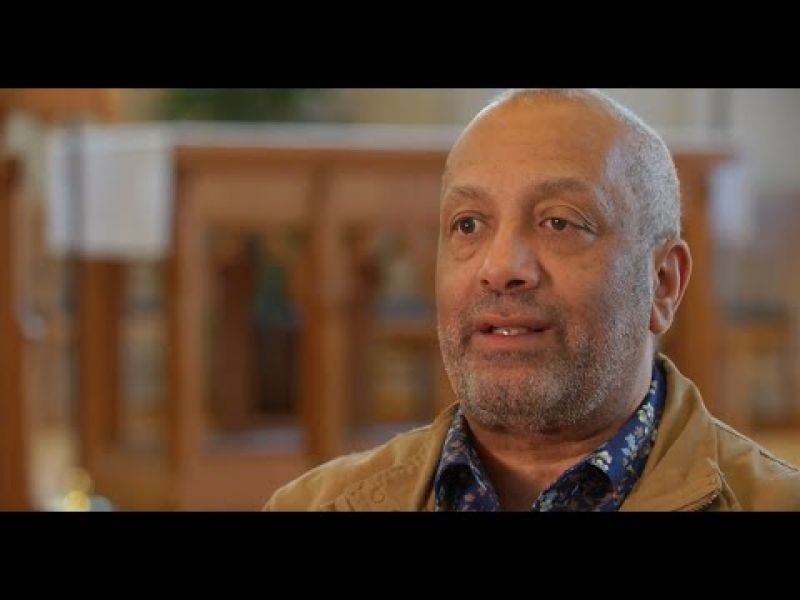Recent Podcasts
More Videos
Watch videos from past events.
"Touching Death: Christian Perspectives on an Anatomy Lab"
Farr Curlin, MD, Co-Director of the TMC Initiative and Ross Wagner, PhD, Professor of New Testament held a conversation in partnership with the Triangle Christian and Medical Associations (TCMDA) on the medical formation that takes place in the anatomy lab.
Jesus and Medicine: What Does Christianity Have to Offer Healthcare?
"Jesus and Medicine: What Does Christianity Have to Offer Healthcare?" is a series of lectures created by the Theology, Medicine, and Culture Initiative at Duke Divinity School.
Watch: "What Does Christianity Have to Offer to Modern Health Care?"
Warren Kinghorn, MD, ThD
Watch: "Set in Stone: St. Basil and Christian Foundations of the Hospital and Healthcare"
Brett McCarty, ThD
Watch: "Vocation and Burnout"
Farr Curlin, MD
Watch: "Helping patients who are dying or helping patients to die?"
Farr Curlin, MD
Watch: "Agape Love, the Beloved Community, and Our Collective Work in Bioethics"
Patrick T. Smith, PhD
Watch: "Ignatian Discernment and the Practice of Medicine"
Martha Carlough, MD, MPH
Recordings from Practice and Presence 2018
Duke Divinity Professor Kate Bowler, author of the bestselling Everything Happens for a Reason, and Other Lies I’ve Loved, speaks about her struggle to understand the personal and spiritual dimensions of the American belief that all tragedies are tests of character after she was diagnosed with Stage IV cancer at age 35.
Clips from the above conversation:
More Podcasts
Listen to more podcasts featuring our faculty.
Dr. Warren Kinghorn: “Trauma, Ministry, and Healing.” The Living Church Podcast. September 23, 2021
Dr. Farr Curlin: “The Way of Medicine.” CMDA Matters Podcast. September 16, 2021.
Dr. Warren Kinghorn: “Medicine, a Moral Enterprise.” The Healthy Doctor Podcast. May 18, 2021.
Dr. Farr Curlin: The Profiles and Profundity Podcast. April 30, 2020.
Dr. Patrick Smith: “Advancing Social Justice, Health Equity and Community.” Callahan Lecture for the Hastings Center, February 2021
Dr. Sarah Jean Barton. DIVcast: Duke Divinity Admissions Podcast.
Dr. Farr Curlin: “Contending Conscientiously for Good Medicine.” CMDA Matters
Dr. Warren Kinghorn: Health is Membership: 25 Years Later. June 11, 2020.
Dr. Brett McCarty: “Faith and Medicine.” The Faith and Work Podcast. March 12, 2020.
Dr. Farr Curlin: “Making Sense of Death with Dignity.” The Thomistic Institute. Novemeber 14, 2019.
COVID-19 Recordings
Should Christians take the COVID-19 vaccine?
Christians & the Vaccine is a project of Redeeming Babel, whose mission is to provide “biblical thinking in a confusing world.” In this video series, Curtis Chang address the most common spiritual questions Christians have regarding the vaccine.
COVID-19 and Vaccination Controversies: Historical and Contemporary Considerations
This virtual seminar features Jeff Baker, MD, PhD, Professor of Pediatrics and History and Director of the Trent Center for Bioethics, Humanities & History of Medicine at Duke University.
Five Ways To Promote Mental Health During the Pandemic
Professor Warren Kinghorn, MD talks with Rev. Matthew Heyd of Church of the Heavenly Rest in NYC as part of their Faith and Science series.
Families, Relationships and Trauma during COVID-19
Professor Warren Kinghorn, MD talks with TMC alumni Dr. Jennifer Lawson and Tara Corbett, MSW, MTS, about the effects of COVID-19 on families and children.
On the Frontlines: Caring as Christians during COVID-19
Drs. Matt Frederick and Martha Carlough discuss their pandemic experiences in March 2020 and share reflections on their faith.
Triage, Resource, (Re)Allocation and Christian Ethics
Professors Luke Bretheron and Patrick Smith discuss ethical considerations on resource allocation during the pandemic.
What Says the Great Physician? Moral Reflection, Medical Ethics, and Cultural Narratives Amid COVID-19.
This webinar features Professors Farr Curlin and Patrick Smith.
How do we find peace in this anxious moment? God, Mental Health, and COVID-19
This webinar hosted by The Veritas Forum, features psychiatrists Dr. Warren Kinghorn and Dr. Nii Addi, in conversation with Dr. Michelle Kirtley about mental health during the pandemic.
Christian Ethics During COVID-19
Duke Divinity faculty Luke Bretherton, Brett McCarty, and Patrick Smith discuss ethics during a pandemic in this 15-minute video.
Health is Membership: 25 Years Later
A conversation with Duke University professor and psychiatrist Warren Kinghorn about wholeness and mental illness, loneliness, and seeing patients as “inhabitants of stories” rather than “bearers of symptoms.”






